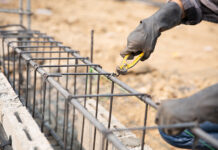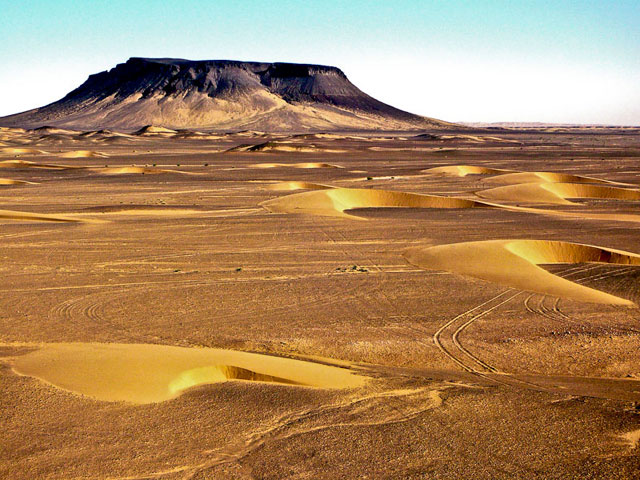ISLAMABAD: On Sunday, Barrick Gold Corporation Chief Executive Officer Mark Bristow announced the establishment of a project office in Quetta at a ceremony conducted at the Chief Minister’s secretariat.
As part of a three-day project review that started in Quetta, Bristow, accompanied by senior Barrick executives, met with Balochistan chief minister Abdul Quddus Bizenjo and other provincial leaders to brief them on the extensive social and economic development opportunities that would be generated by the mine, which is expected to have a life of at least 40 years.
The meeting was attended by a wide spectrum of provincial stakeholders and leaders, including opposition leader Malik Sikandar Khan (JUI-F) and leaders of the Balochistan Awami Party (BAP), Jamiat Ullema Islam (JUI-F), Pakistan Tehreek-e-Insaf (PTI), and Awami National Party (ANP).
The Chief Minister of Balochistan Mir Abdul Qudoos Bizenjo during the meeting is reported to have stated that the attendance of opposition members at the ceremony demonstrated that the government and the opposition were on the same page regarding the project.
“We have reached this stage after passing through some difficulties, including legislation, taking the political leadership into confidence and removing hurdles in signing the historical agreement,” the chief minister added.
Barrick Gold is planning to complete the Reko Diq feasibility study update by the end of 2024, said Mark Bristow in a news release on Monday. The chief executive’s statement came in the backdrop of the completion of the legal processes and definitive transaction agreements last month.
Barrick Gold chief executive Mark Bristow also said that the company had set 2028 as the target for starting the first production from the giant copper-gold mine Reko Diq in Balochistan.
After the meeting, Bristow and the chief minister signed a memorandum of agreement which specifies the timetable for the disbursement of committed funds to the province, including advance royalties and social development funds, ensuring that the people of Balochistan start earning benefits from the project well before the mine goes into production. The agreement provides for an initial payment of $3 million this month.
According to the press release, Reko Diq will be operated by Barrick, which owns 50% of the project, with Balochistan holding 25% and three Pakistani state-owned enterprises sharing the remaining 25%. The shareholding structure is in line with Barrick’s policy of benefit-sharing partnerships with its host countries.
The Federal Government’s interest is split among three state-owned companies: OGDC, PPL, and GHPL, each of which controls 8.33 percent of the project. In addition, free equity accounts for 10% of the total 25% interest of the Balochistan Government in the mine.
The project is divided into two phases, with a total projected capex cost of $7 billion, with the first phase requiring $4 billion and the second phase requiring $3 billion. In addition, the project’s total entry amount is $2.2 billion, bringing the entire project size to $9-10 billion.
According to a report published by Arif Habib earlier last year the annual copper output is predicted to be between 650 and 700 million pounds per annum for the first ten years, increasing to 800 to 850 million pounds per annum when phase 2 is completed.
Furthermore, gold production is estimated to be 300,000 to 350,000 ounces on yearly basis for the first ten years (first phase) before increasing to 450,000 to 500,000 ounces following the planned expansion.
In terms of the revenue mix, Copper again would account for the bulk of the revenue in this case 80.6% or $49.9 billion. Whereas the mining of Gold would amount to 19.4% or $12 billion of the total revenue expected to be generated in the second phase.
To sum it all up the Government of Pakistan would be able to generate an estimated average of $1.4 billion annually over the course of the first phase and an additional $1.7 billion over the next 35 years during the second phase of the project. This would amount to a whopping $76 billion over the next 45-50 years.
However some pressing issues concerning the logistics of the project need to be addressed. Transportation of raw copper ore or gold from the mine to the port via road is wholly unfeasible for a long term project of such magnitude.
Taking the example of the Saindak silver mine located in Chaghai, the silver ore extracted from the mine has to be transported 1,127 km from the site to the port in Karachi by trucks. That is absolutely ridiculous, as the costs associated with using trucks would have an adverse effect on the bottom line and overall feasibility of the project.
If a similar plan is on the table for Reko Diq, the margins of Barrick and the Government would significantly diminish for several reasons. The time and cost of fuel associated with traversing such a long distance are huge, additionally the conditions of the road infrastructure further compound costs and increase potential losses from accidents.

























Excellent blog, Thanks! Wish you the best of luck with yours as well!